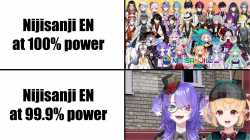>>66730336>>66730370>>66730389Certainly! Here's a formatted and edited version for easier readability:
Corporation hierarchies typically function with three levels of management: low, mid, and upper. The low level handles day-to-day operations, mid-level oversees regional operations, and upper-level consists of administrators, including the CEO and CFO.
At the low level, staff members deal with talents, manage permissions, and handle tech issues. They have flexibility but are often stressed and busy. Mid-level executives act as intermediaries between low and upper levels, receiving objectives from upper management. Upper-level executives, such as CEOs and CFOs, answer to shareholders.
It's crucial to note that mid-level/branch managers may not be familiar with the day-to-day operations of talents. They rely on information provided by talent managers and might not directly interact with talents. Upper-level management, despite their power, stays detached from day-to-day affairs, trusting the hiring managers and low-level staff to handle their responsibilities.
Good upper-level management trusts their team, while bad management remains detached and may even harass or fire those reporting issues. In the case of NiiiEN, Yagoo represents the former type, while Riku embodies the latter.
An 80/20 rule may apply to talents, where 20% of them contribute to 80% of the workload. In NiiiEN's case, with 34 active talents, 7 may handle the majority of the work, and within that 20%, only 2 carry 64% of the entire branch's workload. Riku, as the branch manager, might be unaware of these details.
If 3 of the top 20% talents leave NijiEN, like Pomu already leaving and Selen's status uncertain, the branch could enter a death spiral. Possible departures of Rosemi, Petra, or Elira could lead to a critical situation, risking the branch's stability and market share.

